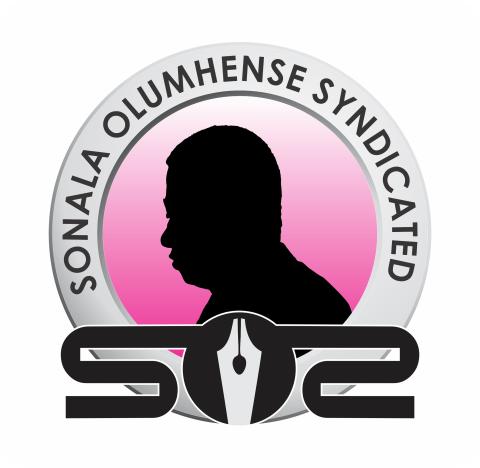
I confess I have had difficulty reviewing in the amazing African spirit in which it is written, Kingsley Chiedu Moghalu’s new book, “Emerging Africa”, subtitled “How the Global Economy’s ‘Last Frontier’ Can Prosper and Matter”.

Dr. Moghalu’s effort is, without any doubt, recommended reading for anyone who is concerned about the place and fate of Africa in the world, and for those Africans who are involved in the business of trying to move their countries forward.
Moghalu, who is currently a Deputy Governor of the Central Bank of Nigeria, provides a robust, insightful and passionate tour de force. There are no rumors here and no hidden agendas: just a full-frontal analysis of the African condition and a persuasive description of what can be done.
‘Emerging Africa” is at once a rebuttal and a proposal. It is a rebuttal to cynical questions as to why Africa is as Africa is, and a decisive proposal about what can come next.
My interpretation of this work kept shifting to Nigeria, and the events currently unfolding there. There is a Transformation Agenda at work in Nigeria that is often challenged by commentators, partly for its absence of depth and substance, and partly for the cynicism of its implementation. Moghalu observes, in the African context: “transformation is a strong word and is not to be used lightly,” and warning that it is not the same as “reform.”
If you have a relationship with Nigeria, and have wondered about where it goes next, you cannot be untouched by the prospects of the electoral fork in the road of February 2015, where Nigerians are faced with what some see as a practical evaluation of the Transformation Agenda.
Moghalu’s book, casting a broad sweep across History and across Africa, is a gift that all serious African politicians, policymakers and nationalists should read. Some of its pills are hard to swallow, because he does not suffer fools gladly.
Moghalu is a passionate writer, but he is also a ruthless surgeon, and he dissects the African situation with persistence and thoroughness. He defines with imperious clarity, and analyses with authoritative ruthlessness. Nobody with a thin intellectual of political membrane, or an impatient policy bent, will find a hiding place in it.
It is natural to expect that Africa will join the developed world. But is it also conceivable that Africa, the “cradle of civilization” may once again—given that all of History appears to be cyclical—may one day again lead the world?
Moghalu’s answer is in the affirmative. But, he answers, not only is there a lot of work ahead of such a prospect, there is a mechanism that can Africans can put to work in the practical interest of the renewed optimism about their continent, because history proves that there is a logic which works.
Of that optimism, he warns early in the book, “It is important not to get too carried away by the Africa growth story, but rather to interrogate it on the basis of often overlooked fundaments. If you believe, then, that the end of poverty and underdevelopment in Africa is imminent and that the continent is on the verge of an immediate breakthrough as a major global economic player, Emerging Africa will rain on your parade.”
Moghalu does an extensive interrogation of globalization, and argues that Africa should not be excited merely to be a participant. He believes that a fundamental reason for Africa’s condition of underdevelopment is the absence of the development and application of a coherent worldview: “a way of thinking or seeing the world that creates an incentive for real change and progress, and not so much about what the actual solutions might be.”
This concept of a worldview, of “thinking it through”, he says, is his principal thesis. “If African countries take the first, essential step of upgrading their psychological and mental infrastructure with an appropriate worldview, this potential trajectory can unfold in the next fifty years by 2060.”
How Africans should approach the development of their continent lies within that worldview, and in it, its values, strategy and organization. He stresses that Africans must take responsibility for their continent’s development, armed with that clear worldview.
He laments this absence of critical African reflection on the African condition, and the failure to understand that development and the wealth of nations have philosophical foundations. Africans, he explains, need to reflect on such issues as who they are and where they have come from…what Africa is today and what it means to be an African…where Africa should be going and how it will get there in a competitive world…
Following such an ardent and exhaustive conversation, he believes Africans should then articulate the cultural and spiritual values they identify and apply them to a vision they set for themselves using their educational systems, their economies, their political spaces, their international diplomacy, and the delicate arts of citizen persuasion and nation-branding.
He closely examines the paths of other peoples and cultures to development, particularly of such countries as China, Brazil and Malaysia, precisely pin-pointing how they achieved their turnaround. In that light, Nigerians and those who are interested in the Nigerian condition will find an engaging interrogation of the country’s specific prospects.
Mogahalu asserts that (true) economic transformation in Nigeria calls for a paradigm shift: a fundamental change of approach to the challenge facing the country. The prerequisites, in this schema, would include political will, policy consistency and continuity, improved economic governance, performance measurement, and accountability and selective prioritization.
His evaluation of such benchmarks as finance and financial markets, foreign investment and the knowledge economy are an invaluable companion for any serious African leader, policy-maker, teacher, and—I daresay—journalist. Of perhaps greater importance, he identifies and explores the critical subjects of strategy and risk management, explaining why Africa’s poverty is related to the fact that governments in Africa often have no formal structures that focus on these: they “plan”, but without the right sort of thinking…without “strategic intent.”
Moghalu makes clear and detailed suggestions about how the appropriate African worldview may be established. He also suggests a process that will ensure that that worldview becomes the perpetual property of the country, providing a guiding light forward for whichever political party happens to assume power at any point. In my view, and as someone who has lacked faith in the efficacy of a sovereign national conference, this is one of Moghalu’s most fundamental pearls of wisdom.
The unknown is whether a political elite that has spent the past half-century focused only on its own voracious appetites can somehow find the heart to accept this task, to find the understanding that it needs to cooperate in the construction of the long and neglected highway.
There is no answer to this question in the book, evidently because it is not part of the assignment. However, in subscription to, and solidarity with Dr. Moghalu’s historic effort, I am donating two copies of the book, which I will request him to autograph, to each of Nigeria’s top 10 political parties, and to the African Union Library in Addis Ababa. I invite my readers, editors and publishers to broadcast the message by making similar gestures.
Twitter: @SonalaOlumhense